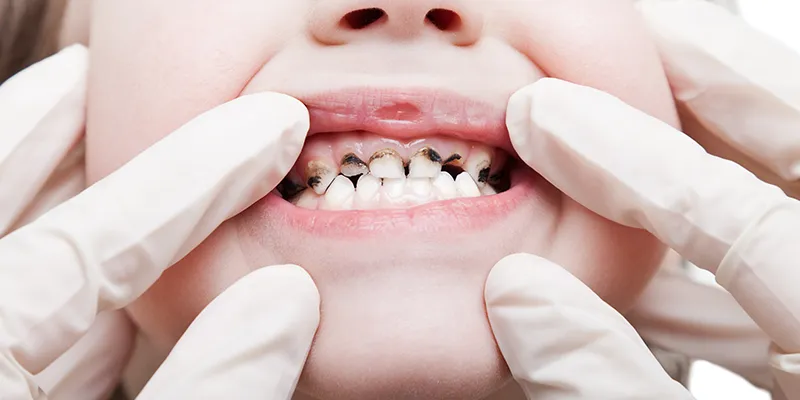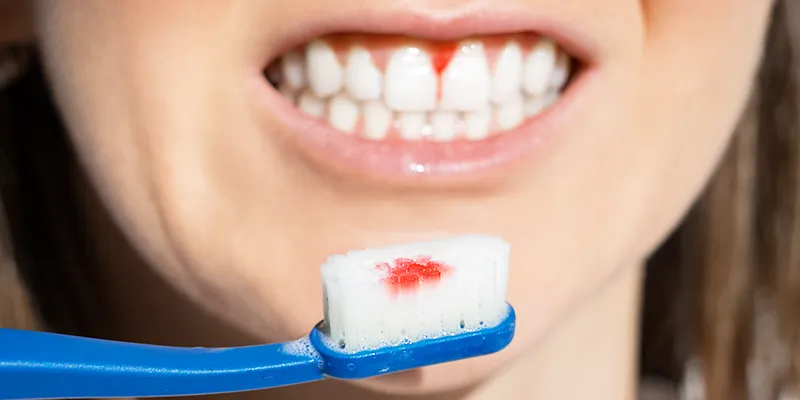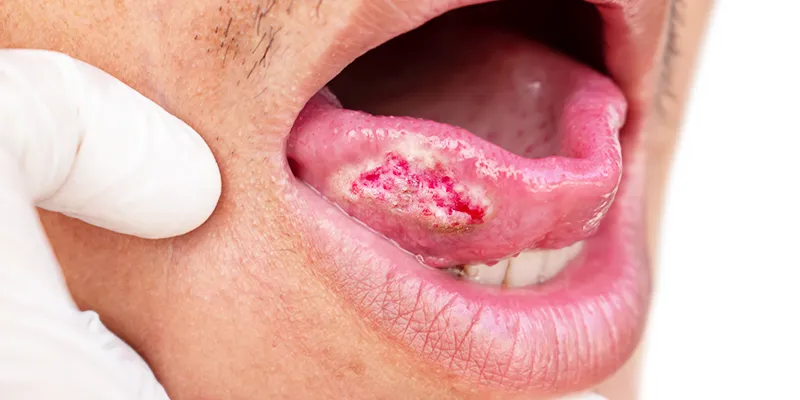Oral Health
Your guide to a healthier mouth
Regular dental checkups, consistent oral care, and good habits are key to a healthy smile.
Oral Health
Your guide to a healthier mouth

What is oral health?
Oral health refers to the overall condition and functionality of your mouth, including your teeth, gums, throat, and jaw. Maintaining good oral health allows you to eat, speak, and interact confidently and comfortably, free from pain or discomfort. It is a crucial aspect of your overall health and well-being. Poor oral health can lead to physical pain, difficulty chewing, communication challenges, and emotional distress — all of which can significantly impact your quality of life.
Why oral health is the foundation of overall wellbeing
Oral health plays a crucial role in your overall well-being, influencing many aspects of your daily life. Healthy teeth and gums enable you to chew effectively, which aids digestion and ensures proper nutrient absorption. A well-maintained mouth is also essential for clear speech, allowing you to articulate words and sounds accurately. Beyond these practical functions, a healthy smile enhances your confidence, enriching your social interactions and boosting self-esteem.
Your oral health also serves as the body’s first line of defence against harmful bacteria. Healthy gums and oral tissues help prevent bacteria from entering the bloodstream, reducing the risk of infections. Good oral hygiene not only wards off common issues like tooth decay, gum disease, and bad breath but also lowers the risk of serious health conditions such as heart disease, diabetes, and respiratory infections.
By prioritising your oral health, you enhance your quality of life — enabling you to eat, speak, and socialise comfortably. Neglecting oral care, on the other hand, can result in pain, difficulty eating, and complications that impact your overall health. Regular oral care supports your confidence, helps you avoid costly treatments, and promotes long-term well-being.

Common conditions that affect oral health
Several conditions can significantly impact your oral health. Here are some of the most prevalent ones:

Tooth decay (Cavities)

Tooth decay, commonly known as cavities, is one of the most widespread dental issues. It occurs when bacteria in plaque — a sticky, colourless film that forms on your teeth — produce acids that erode the enamel. This erosion gradually leads to the formation of small holes or cavities. If left untreated, tooth decay can cause pain, infections, and may ultimately lead to tooth loss.

Gum disease (Periodontal disease)

Gum disease is a progressive infection of the gums resulting from plaque and tartar buildup. It typically starts as gingivitis, characterised by red, swollen, and bleeding gums. If untreated, it can progress to periodontitis, a more severe condition where gums recede from the teeth, leading to bone and tissue damage. In advanced stages, it can cause tooth loss and is linked to systemic health issues such as heart disease and diabetes.

Oral cancer

Oral cancer is a serious and potentially life-threatening condition that affects the tissues of the mouth, including the lips, tongue, cheeks, gums, and throat. Major risk factors include tobacco use, excessive alcohol consumption, and human papillomavirus (HPV) infection. Early signs may include persistent mouth sores, unexplained lumps, or patches of red or white tissue. Regular dental check-ups are critical, as early detection greatly improves the likelihood of successful treatment.

Common causes of oral problems
- Poor oral hygiene: Neglecting regular brushing and flossing can lead to plaque buildup and gum disease.
- Unhealthy diet: A diet high in sugar and low in essential nutrients can contribute to tooth decay and other oral health problems.
- Trauma: Injuries to the mouth and teeth can cause damage and infections.
- Smoking cigarettes: Smoking and chewing tobacco can stain teeth, cause gum disease, and increase the risk of oral cancer.
- Excessive alcohol consumption: Excessive alcohol consumption can lead to dry mouth, which can increase the risk of tooth decay and gum disease.
- Medications: Certain medications can cause dry mouth as a side effect, increasing the risk of oral health problems.
- Genetic factors: Genetics can play a role in the development of certain oral health conditions, such as tooth decay and gum disease.
- Age-related changes: As we age, our teeth and gums become more susceptible to wear and tear, increasing the risk of oral health problems.
Oral health is linked to chronic diseases
Poor oral health doesn’t just affect your mouth — it is closely connected to various chronic diseases, influencing your overall well-being in significant ways:
Protect your smile and oral health
Oral hygiene practices
- Brush twice daily: Brush your teeth for at least two minutes, twice a day, using a soft-bristled toothbrush and fluoride toothpaste. Use gentle, circular motions to protect your gums and enamel. Be sure to clean all surfaces — front, back, and chewing surfaces — for a thorough clean.
- Floss daily: Floss once a day to remove plaque and food particles from between your teeth and below the gumline. This helps prevent cavities, gum disease, and bad breath by reaching areas your toothbrush cannot.


The power of nutrition
- Eat a balanced diet: Incorporate nutrient-rich foods such as fruits, vegetables, whole grains, lean proteins, and dairy products. These provide essential vitamins and minerals — like calcium, phosphorus, and vitamin D — that help maintain strong teeth and healthy gums.
- Limit sugary foods and drinks: Reduce your intake of sugary snacks, candies, and beverages like soda and juice. Sugar feeds harmful bacteria in your mouth, producing acids that lead to tooth decay. Opt for healthier choices like fruits, nuts, or plain yogurt.
- Stay hydrated: Drink plenty of water throughout the day to rinse away food particles, neutralise acids, and maintain saliva production. Fluoridated water helps strengthen enamel and prevent decay.

Simple lifestyle tweaks for optimal health
- Avoid smoking: Refrain from smoking or chewing tobacco. Tobacco products increase your risk of gum disease, tooth loss, and oral cancer, and they can cause persistent bad breath and tooth staining.
- Limit alcohol consumption: Excessive alcohol can lead to dry mouth, reduced saliva production, and a higher risk of tooth decay and oral cancer. Choose water or low-sugar alternatives to support your oral health.

Prioritise your oral health for a lifetime of wellbeing
Maintaining good oral health is a lifelong commitment that significantly impacts your overall quality of life. By adopting daily preventive habits, making smart dietary and lifestyle choices, and scheduling regular dental checkups, you can prevent common dental issues and enjoy a confident, pain-free smile.
Routine dental visits are essential:
- For infants: Schedule their first dental visit when their first tooth appears or by their first birthday. Early checkups help detect potential issues and instil healthy oral care habits.
- Children, teens, and adults: Visit the dentist every six months for comprehensive checkups and professional cleanings. These visits enable early detection of tooth decay, gum disease, and oral cancer, ensuring timely intervention and less invasive treatments.
Investing in your oral health is an investment in your well-being. A healthy smile not only reflects good dental care but also boosts your confidence, enhances your comfort, and supports overall happiness. Prioritise your oral health today to enjoy a brighter, healthier, and more vibrant you.
Prioritise your oral health for a lifetime of wellbeing
Maintaining good oral health is a lifelong commitment that significantly impacts your overall quality of life. By adopting daily preventive habits, making smart dietary and lifestyle choices, and scheduling regular dental checkups, you can prevent common dental issues and enjoy a confident, pain-free smile.
Routine dental visits are essential:
- For infants: Schedule their first dental visit when their first tooth appears or by their first birthday. Early checkups help detect potential issues and instil healthy oral care habits.
- Children, teens, and adults: Visit the dentist every six months for comprehensive checkups and professional cleanings. These visits enable early detection of tooth decay, gum disease, and oral cancer, ensuring timely intervention and less invasive treatments.
Investing in your oral health is an investment in your well-being. A healthy smile not only reflects good dental care but also boosts your confidence, enhances your comfort, and supports overall happiness. Prioritise your oral health today to enjoy a brighter, healthier, and more vibrant you.

